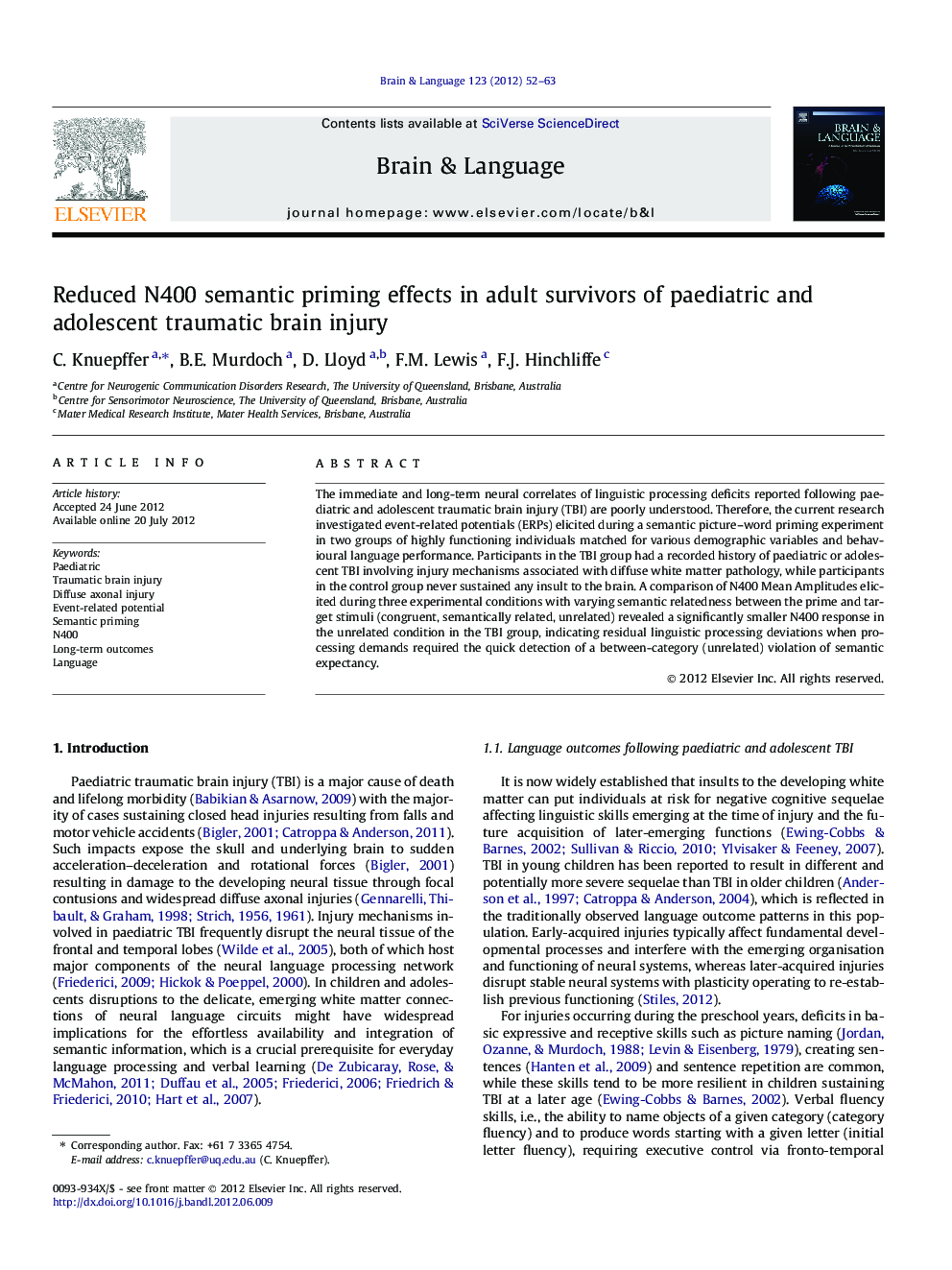| Article ID | Journal | Published Year | Pages | File Type |
|---|---|---|---|---|
| 925393 | Brain and Language | 2012 | 12 Pages |
The immediate and long-term neural correlates of linguistic processing deficits reported following paediatric and adolescent traumatic brain injury (TBI) are poorly understood. Therefore, the current research investigated event-related potentials (ERPs) elicited during a semantic picture–word priming experiment in two groups of highly functioning individuals matched for various demographic variables and behavioural language performance. Participants in the TBI group had a recorded history of paediatric or adolescent TBI involving injury mechanisms associated with diffuse white matter pathology, while participants in the control group never sustained any insult to the brain. A comparison of N400 Mean Amplitudes elicited during three experimental conditions with varying semantic relatedness between the prime and target stimuli (congruent, semantically related, unrelated) revealed a significantly smaller N400 response in the unrelated condition in the TBI group, indicating residual linguistic processing deviations when processing demands required the quick detection of a between-category (unrelated) violation of semantic expectancy.
► Paediatric TBI can lead to life-long alterations of neural language processing. ► Behavioural tests tend to lack the sensitivity to reliably detect the often subtle deficits. ► ERPs can aid in revealing residual linguistic processing deficits in adult survivors of paediatric and adolescent TBI. ► Introduction of a semantic priming paradigm that is sensitive to the linguistic deficits present in TBI survivors.
